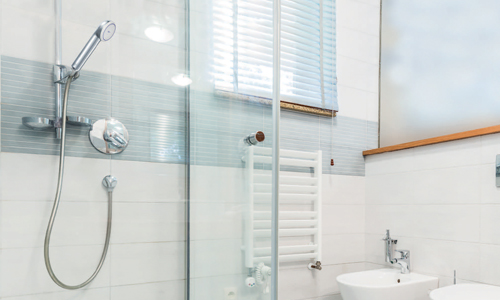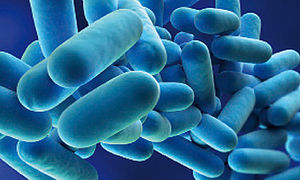Magazine
Hotels – Safeguarding water quality and protecting guests from legionella

Drinking water systems in hotels are generally so-called large-scale facilities. Hotel operators are obliged to guarantee water quality in accordance with the guidelines of the German Drinking Water Ordinance (TrinkwV). As letting out rooms involves a commercial activity, they are also subject to regular inspection obligations concerning legionella. Inspections are carried out on an annual basis. Inspection intervals can be extended to up to three years. This is subject to the provision of evidence of compliance with the generally accepted rules of technology and that results are based on at least three annual inspections without any reservations. Certified laboratories or other certified samplers are authorised to inspect and sample drinking water for legionella and other types of contamination.
Large-scale facilities as defined by the German Drinking Water Ordinance are facilities (e.g. in residential buildings, hotels, hospitals) with storage water heaters or with a central flow water heater, each with a capacity of more than 400 litres or a capacity of more than three litres in at least one pipeline between the water heater outflow and the tapping point.
Despite statutory stipulations, water pipes in hotels in Germany are contaminated by legionella time and again. In the event of contamination, liability is borne by the hotel owner – up to and including criminal prosecution which can even entail a prison term.
What is legionella and why is it so dangerous for humans?
Legionella live in water and are rod-shaped bacteria. They are found where warm water offers ideal conditions for propagation. There are various types of legionella; the best-known type is Legionella pneumophila, the pathogen for so-called Legionnaire's disease (legionellosis). This infectious disease – an airborne droplet infection – presents in the form of pneumonia which, untreated, can become life-threatening. In rare cases, legionella can also cause wound infections, endocarditis or pyelitis. Infection is usually caused by inhaling the bacteria while showering. Apart from hotel rooms, shower facilities in wellness and spa areas also need to be considered.
Risk factors associated with legionella contamination
Legionella thrive at a temperature of 20-55 °C where they multiply accordingly. Furthermore, propagation of the bacteria is encouraged by the appropriate nutrient supply, e.g. biofilms in water pipes. In water, legionella multiply intracellularly in amoeba and other single-cell organisms (protozoa). The pathogens breed particularly well in standing water. Most types of legionella die as of a temperature of 60 °C. But some observations indicate that there are some types which have meanwhile adapted so well that they can survive at temperatures of up to 70 °C.

An increased risk of legionella prevails in the case of older, poorly-maintained or only occasionally-used hot water pipes, tanks displaying limescale, and the use of rubber or plastic materials. The risk increases in the case of branched pipe systems with dead tap lines. If a hotel is not regularly occupied to full capacity, there is a risk of legionella contamination caused by stagnant water. Another risk factor is presented by the temperature in the hot water pipes. In an attempt to conserve energy, the hot water temperature is sometimes reduced in systems with the result that the specified temperature of 60 °C is no longer achieved. In long hot water pipe routes, there is a danger of the water cooling off too extensively before it reaches the outlet. Local flow heaters should be installed in such cases.
Preventive measures
Legionella contamination can be prevented by applying various measures. The pipes should be well-insulated. Insulation retrofitting is recommended for older pipes. The hot water tank should comply with actual requirements and the temperature at the outlet point should be at least 60 °C. Unused pipes should be dismantled. During periods when the hotel is not booked to full capacity, the water tapping points should be turned on regularly for several minutes at a time. Good technical maintenance of the water system in accordance with the technical rules of the DVGW W 551 worksheet for drinking water heaters and pipe systems is also recommended.
As a guest in a hotel, recommendations include running the hot water in the shower and taps for a few minutes before using for the first time in order to flush stagnant water out of the pipes and leaving the room while doing so.
What to do in the event of contamination
If a water sample reveals more than 100 colony-forming units (CFU) per 100 millilitres of water, i.e. the so-called technical action value, there is a potential risk for the guest. These findings must be reported immediately to the responsible health authorities. Depending on the degree of contamination, various measures need to be applied.
| Medium level of contamination (CFU / 100 ml > 100) | High level of contamination (CFU / 100 ml > 1.000) | Extremely high level of contamination (CFU / 100 ml > 10.000) | |
|---|---|---|---|
| Thermal or chemical disinfection | Yes | Umgehend | Unverzüglich |
| Impose an immediate showering ban in co-ordination with the health authorities | -- | -- | Yes |
| Hazard analysis in accordance with VDI 6023 | Yes | Yes | Yes |
| Cleaning or replacement of the shower heads and aerators | Yes | Yes | Yes |
| Inspection of the hot water tank and the circulation pipe | Yes | Yes | Yes |
| Inspection of the hot water tank and introduction of the requisite measures (e.g. pipe cleaning, de-sludging, descaling) | Yes | Yes | Yes |
| Inspection of the temperature at the water heater outlet (min. 60 °C) and after circulation (min. 55 °C) | Yes | Yes | |
| Measures for raising the hot water temperature if it fails to reach these levels | Yes | Yes | Yes |
| Dismantling or regular flushing of dead lines | Yes | Yes | Yes |
Source: https://www.brunata-metrona.de/trinkwasseranalyse/was-ist-zu-tun.html
Furthermore, two follow-up inspections of the hot water system are required if the legionella limit value is exceeded. The results of these two follow-up inspections must be submitted to the respective health authorities.
One very effective measure in the event of contamination involves the installation of membrane filters in shower facilities. Single-use showers and showers with replaceable filter cartridges are available whose clear and functional design enable them to be integrated harmoniously in modern bathrooms so that guests are protected from legionella and other water-borne germs such as pseudomonades at all times. These legionella showers feature hollow-fibre membranes which filter 99.99999% of all water-borne germs out of the water. This complies with the requirements in medicine for sterile-filtered water and permits carefree showering even in the event of contamination. Depending on the model, the filter / filter cartridge service life is several months.
In summary, it can be established that commercial operation of a drinking water supply system such as in a hotel is associated with structural stipulations and duties of care in terms of system maintenance. The stipulations outlined in the German Drinking Water Ordinance must be implemented to ensure that guests’ health is not compromised. By installing the corresponding filters, a showering ban can be prevented in the event of contamination, enabling hotel operations to be maintained.